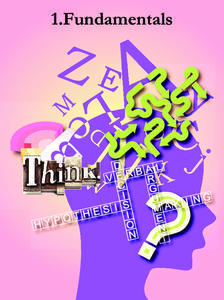Curated OER
House and Holmes: A Guide to Deductive and Inductive Reasoning
Test your pupils' reasoning skills with several activities and a quick mystery to solve. Learners watch and analyze a few video clips that demonstrate reasoning in action, practice deduction with an interactive and collaborative...
Virginia Department of Education
Inductive and Deductive Reasoning
Introduce pupils to the two types of reasoning, inductive and deductive. Classmates work in pairs or small groups to learn the difference between the two and apply these reasonings to develop valid conclusions.
Education Bureau of Hong Kong
Fundamentals of Critical Thinking
Analyzing arguments is key to critical thinking. Colorful slides teach viewers how to recognize the structure of an argument, the claims, and the validity of the evidence used to support an argument. Then, provided scenarios permit...
Virginia Department of Education
Logic and Conditional Statements
If there is a conditional statement, then there is a hypothesis and conclusion. Pupils learn how to identify the parts of conditional statements. Class members continue to work with conditional statements and rewrite them in their many...
Royal Society of Chemistry
Apparatus Diagrams 2
Ready to heat things up in the lab, but your class doesn't know its way around a Bunsen burner? Scholars get familiar with heating apparatuses through a series of puzzles designed to promote vocabulary and reasoning skills. The...
Mathematics Vision Project
Geometric Figures
Logical thinking is at the forefront of this jam-packed lesson, with young mathematicians not only investigating geometric concepts but also how they "know what they know". Through each activity and worksheet, learners wrestle with...
Education Bureau of Hong Kong
Fundamentals
"Fundamentals," the first lesson in a series of eight, introduces the basic concepts and strategies covered in a series of resources designed to teach high schoolers critical thinking skills. The worksheets and activities in this first...






